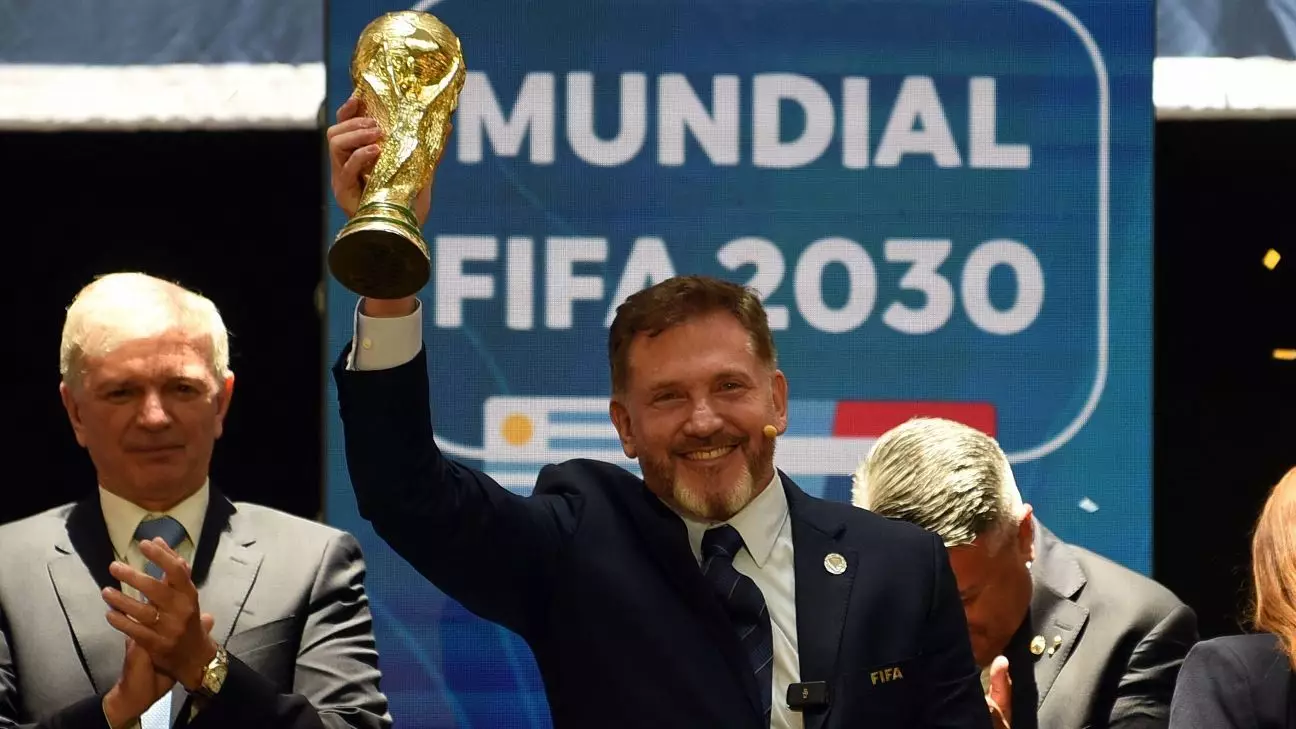Alejandro Domínguez, the president of CONMEBOL, recently ignited a fervor within the soccer community by proposing the expansion of the 2030 FIFA World Cup from 32 to a staggering 64 teams. This ambitious initiative has the potential to transform the landscape of the sport as we know it, allowing nations across the globe to participate in what is poised to be a historic centennial celebration. The idea, first floated during a virtual meeting by a Uruguayan delegate, reflects not only a growing appetite for inclusivity but also a strategic maneuver to amplify the significance of the World Cup anniversary.
Celebrating a Century of Soccer
The year 2030 marks a pivotal milestone, as it will be the 100th anniversary of the World Cup. Domínguez emphasized this unique aspect during his address at the 80th Ordinary Congress of CONMEBOL, stating, “We are convinced that the centennial celebration will be unique because 100 years are celebrated only once.” This perspective underscores the urgency and importance of the proposal, encapsulating the need for a celebration that includes not only powerful soccer nations but also those seeking to carve a space on the world stage.
Uruguay, the inaugural World Cup host in 1930, is set to play a significant role once again, albeit with just a single game scheduled in its territory. Co-hosts Argentina, Paraguay, Spain, Portugal, and Morocco provide a rich tapestry of cultures and legacies, which adds another layer of excitement to this already groundbreaking event. But perhaps the most compelling aspect of this proposal is the potential for universal participation.
A Chance for All Nations to Shine
Expanding the tournament to 64 teams would provide every one of the ten CONMEBOL countries a chance to compete on a global stage, thereby reshaping the tournament’s inclusivity narrative. Notably, Venezuela—yet to qualify for a World Cup—stands to benefit immensely from this expansion. Domínguez articulated that the proposal aims to ensure “no one on the planet is left out of the party,” aligning the goals of global unity and shared experience with the very essence of the World Cup’s spirit.
However, this monumental shift does not come without its detractors. UEFA president Aleksander Čeferin has publicly condemned the proposal, arguing that enlarging the tournament would dilute the quality of play. Furthermore, many critics are concerned that it compromises the integrity of the qualification process across various continents, suggesting that an increase in teams might lead to matches that lack the competitive edge fans have come to expect.
Weighing Inclusivity Against Quality
While it is noble to envision a World Cup where every nation has the opportunity to compete, it’s essential to navigate the tensions between inclusivity and quality. Should the tournament become a playground for mediocrity, soccer’s distinguished status could be at stake. Balancing these competing interests—fostering passionate participation while maintaining the sport’s competitive integrity—will be the key challenge that FIFA and its stakeholders must confront as discussions around this proposal heat up.
As the 2030 World Cup approaches, the debate surrounding Domínguez’s proposal will undoubtedly intensify, pushing the boundaries of what the future of soccer could look like. A transformative event awaits, but the outcome hangs delicately in the balance, shaped by the responses of governing bodies and the aspirations of soccer fans worldwide.

